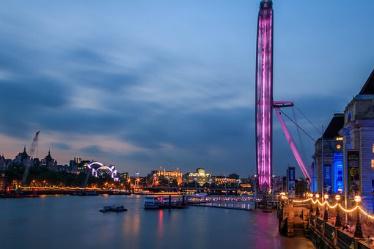Business Energy News

Many factors currently affect energy prices across the UK. Since the UK exited from the European Union, many uncertainties have been expressed resulting from the policy. The impact on the economy of said policy change will determine how confident businesses are to take risks and move from one energy provider to another by comparing rates through UtilityBidder. However, this depends on whether consumer confidence is also high.
In addition, many considerations and factors further contribute to the rising gas prices affecting businesses in the UK. These include low generation of renewable energy sources such as wind power, the balance between supply and demand, and the overall performance of the economy.
What comprises energy consumption for businesses?
Businesses spend a small fortune each year on energy alone. The bulk of the cost goes on heating, ventilation, and air-conditioning. On top of this comes the cost of lighting and powering appliances. Unfortunately, most UK businesses are missing out on the opportunity to save on energy costs.
According to government figures, 70% of the country’s total energy consumption goes to five business sectors – retail, offices, industrial, hospitality, and health. Also, among all these sectors, the industrial sector is the most inefficient, missing out on their chance to save 50% on overall energy consumption.
Reducing energy consumption
How can a company take better control over energy consumption? Experts have the following suggestions:
-
Switch to energy-efficient lighting. Out of the possible £3.7bn savings, companies can make a year, £1.1bn is attributed to commercial lighting expenses. It is significant for the retail and hospitality sectors where lighting is a constant necessity 24/7. Improving lighting choices such as switching to LED lighting as well as adding sensors and timers is essential.
-
Energy management systems. Installing a method for controlling and monitoring heat and ventilation is something to consider for companies with multiple sites such as hotels and shopping malls. A company can save over 10% in energy costs by installing a management system.
These suggestions are still subject to debate since comparing the energy consumption between different sectors suggests a customised energy savings approach is a better solution. For example, large buildings use up more energy and sectors involved with data processing consume more for cooling and processing data centres, compared with a company simply offering warehouse services and logistics.
As such, targeting specific areas of the business where energy management can reap high benefits is a must. Energy retailers work with companies to offer energy management solutions aimed at helping companies optimise their energy use. A specific example is the implementation of an on-site energy generator. This system allows the company to recover energy which would otherwise end in waste and use it for other processes.
Both the public and private business sectors need to raise their awareness and efforts to reduce energy consumption. With the continuing rise in energy prices, it can be a significant element for change.


